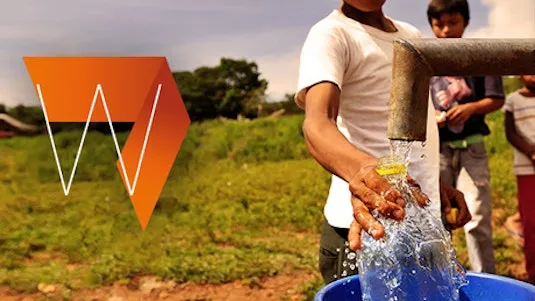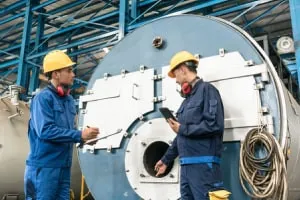
Introduction to Household Water Treatment and Safe Storage 
This online course provides an introduction to household water treatment and safe storage, covering technologies such as boiling, chlorination, and filtration. Students will learn how to select and use appropriate technologies to improve the quality of household drinking water. ▼
ADVERTISEMENT
Course Feature
![]() Cost:
Cost:
Free
![]() Provider:
Provider:
Coursera
![]() Certificate:
Certificate:
Paid Certification
![]() Language:
Language:
English
![]() Start Date:
Start Date:
17th Jul, 2023
Course Overview
❗The content presented here is sourced directly from Coursera platform. For comprehensive course details, including enrollment information, simply click on the 'Go to class' link on our website.
Updated in [April 12th, 2023]
This course introduces learners to the fundamentals of Household Water Treatment and Safe Storage (HWTS). Learners will gain an understanding of the most important water treatment methods at the household level, successful implementation strategies, and how to assess the impact of HWTS. The course will cover topics such as water purification, filtration, and conservation, as well as the Sustainable Development Goals related to water safety. Learners will also gain an understanding of the importance of HWTS in providing safe drinking water to communities around the world. By the end of the course, learners will have the knowledge and skills to implement HWTS in their own communities.
[Applications]
Upon completion of this course, participants can apply the knowledge gained to develop and implement successful Household Water Treatment and Safe Storage (HWTS) programs. They can also assess the impact of HWTS and identify key components that make programs more likely to succeed. Additionally, participants can use the knowledge gained to contribute to the other courses in the series “Sanitation, Water and Solid Waste for Development”.
[Career Paths]
1. Water Treatment Engineer: Water treatment engineers are responsible for designing, constructing, and maintaining water treatment systems. They must have a strong understanding of water chemistry, engineering principles, and environmental regulations. As the global population continues to grow, the demand for clean water is increasing, making this an important and growing field.
2. Water Quality Analyst: Water quality analysts are responsible for testing and analyzing water samples to ensure they meet safety standards. They must have a strong understanding of water chemistry and be able to interpret data and make recommendations. As the demand for clean water increases, the need for water quality analysts is expected to grow.
3. Water Conservation Specialist: Water conservation specialists are responsible for developing and implementing strategies to reduce water consumption. They must have a strong understanding of water conservation principles and be able to identify and implement effective solutions. As the global population continues to grow, the demand for water conservation specialists is expected to increase.
4. Water Treatment Plant Operator: Water treatment plant operators are responsible for operating and maintaining water treatment plants. They must have a strong understanding of water chemistry and engineering principles, as well as the ability to troubleshoot and repair equipment. As the demand for clean water increases, the need for water treatment plant operators is expected to grow.
[Education Paths]
1. Bachelor of Science in Environmental Science: This degree program focuses on the study of the environment and its effects on human health and the natural world. It covers topics such as ecology, geology, hydrology, and atmospheric science. Students learn about the impact of human activities on the environment and how to develop strategies to protect and restore natural resources. This degree is becoming increasingly popular as environmental issues become more pressing and the need for environmental stewardship grows.
2. Master of Science in Water Resources Management: This degree program focuses on the management of water resources, including the development of policies and strategies to ensure the sustainable use of water. Students learn about the physical, chemical, and biological processes that affect water resources, as well as the legal and economic aspects of water management. This degree is becoming increasingly important as water scarcity and pollution become more pressing issues.
3. Doctor of Philosophy in Environmental Engineering: This degree program focuses on the design and implementation of engineering solutions to environmental problems. Students learn about the principles of engineering and the application of engineering principles to environmental issues. This degree is becoming increasingly important as the need for sustainable solutions to environmental problems grows.
4. Master of Public Health in Environmental Health: This degree program focuses on the study of the effects of environmental factors on human health. Students learn about the health risks associated with environmental exposures, as well as the strategies for preventing and mitigating these risks. This degree is becoming increasingly important as the need for public health professionals with expertise in environmental health grows.
Pros & Cons

Clear information and real examples.

Learn new information about microbial water contamination.

Good start for health project involvement.

Useful for people involved in humanitarian actions.

Nice learning resources with external references.

Focus mainly on developing countries.

Not enough time to cover all topics.

Financial support not available for all.

Not suitable for advanced learners.

Not enough practical applications.
Course Provider

Provider Coursera's Stats at AZClass
This course is a useful resource for learners interested in improving the quality of household drinking water. It covers a range of technologies and their selection and use.
Discussion and Reviews
0.0 (Based on 0 reviews)
Explore Similar Online Courses

Motion Graphics with Kurzgesagt : Part 1

Diploma in Marine Boilers

Python for Informatics: Exploring Information

Social Network Analysis

Introduction to Systematic Review and Meta-Analysis

The Analytics Edge

DCO042 - Python For Informatics

Causal Diagrams: Draw Your Assumptions Before Your Conclusions

Whole genome sequencing of bacterial genomes - tools and applications

Educating for Sustainable Development (ESD) in Schools and Universities

Potable water treatment

Environmental Engineering: Drinking Water Treatment
 Related Categories
Related Categories
 Popular Providers
Popular Providers
 Popular Searches
Popular Searches
Quiz
 Submitted Sucessfully
Submitted Sucessfully
1. What is the main purpose of this course?
2. What language is this course available in?
3. What is the name of the series this course is part of?
4. What is the MOOC series “Sanitation, Water and Solid Waste for Development”?
Correct Answer: It is a series of four courses.


Start your review of Introduction to Household Water Treatment and Safe Storage